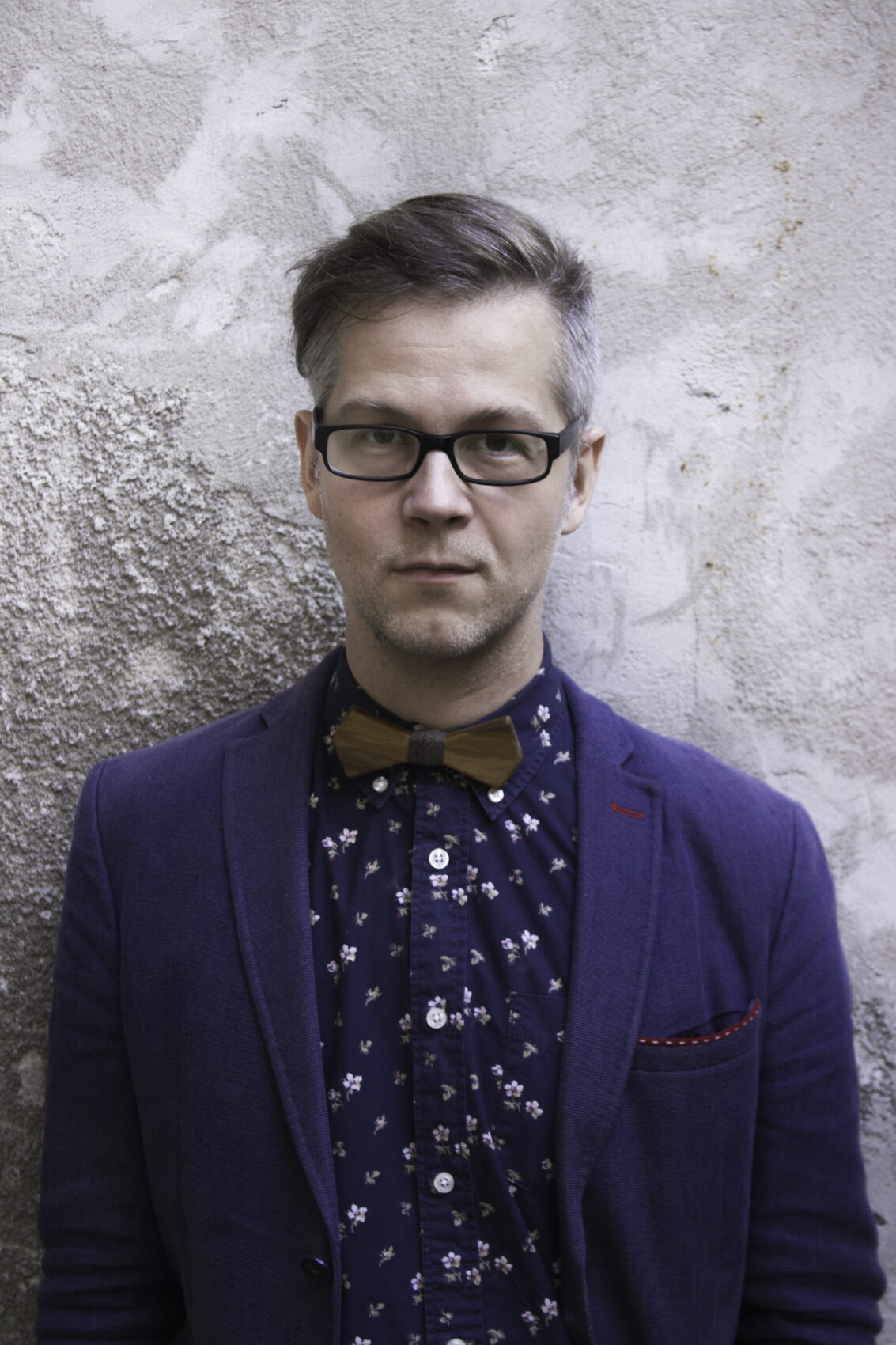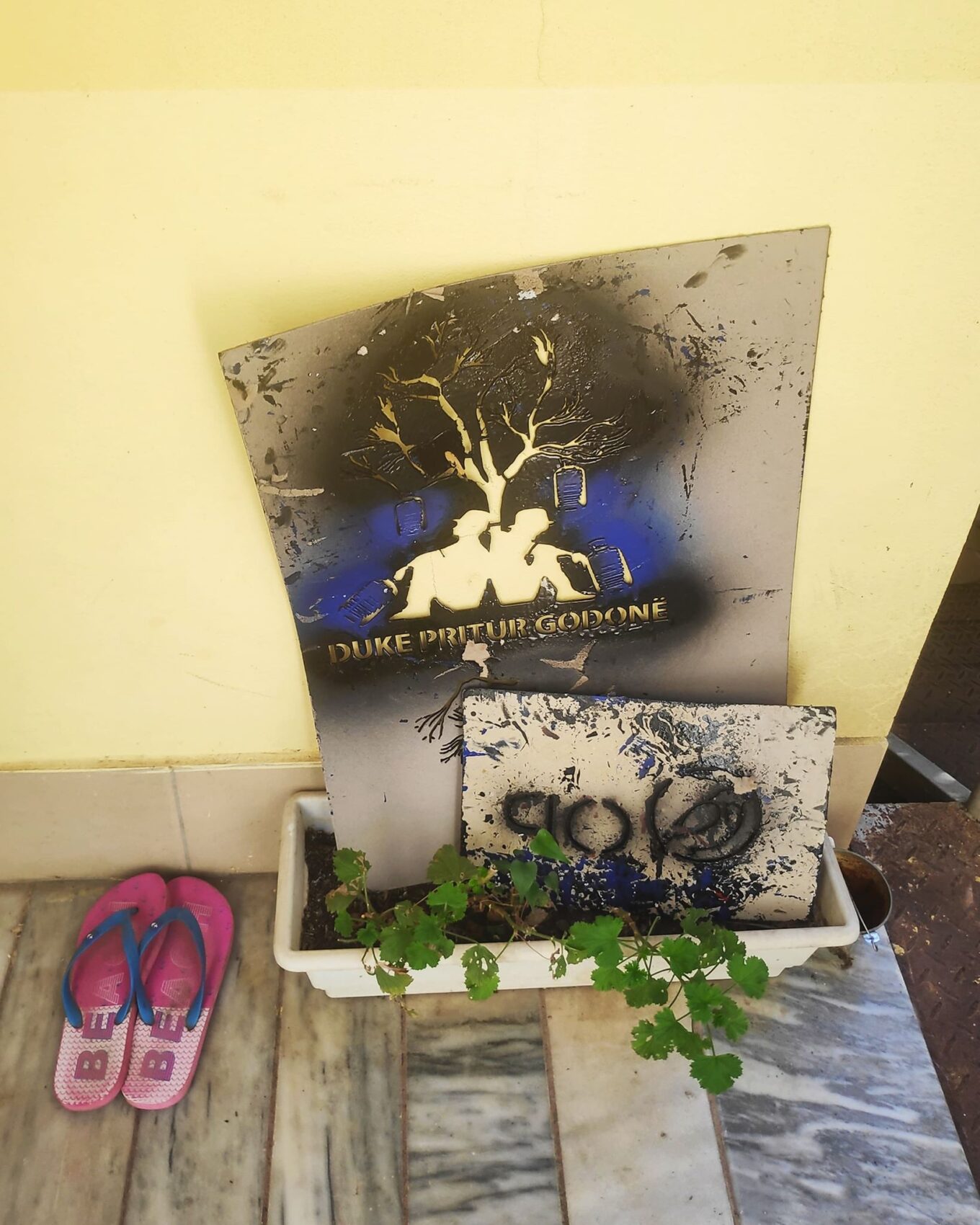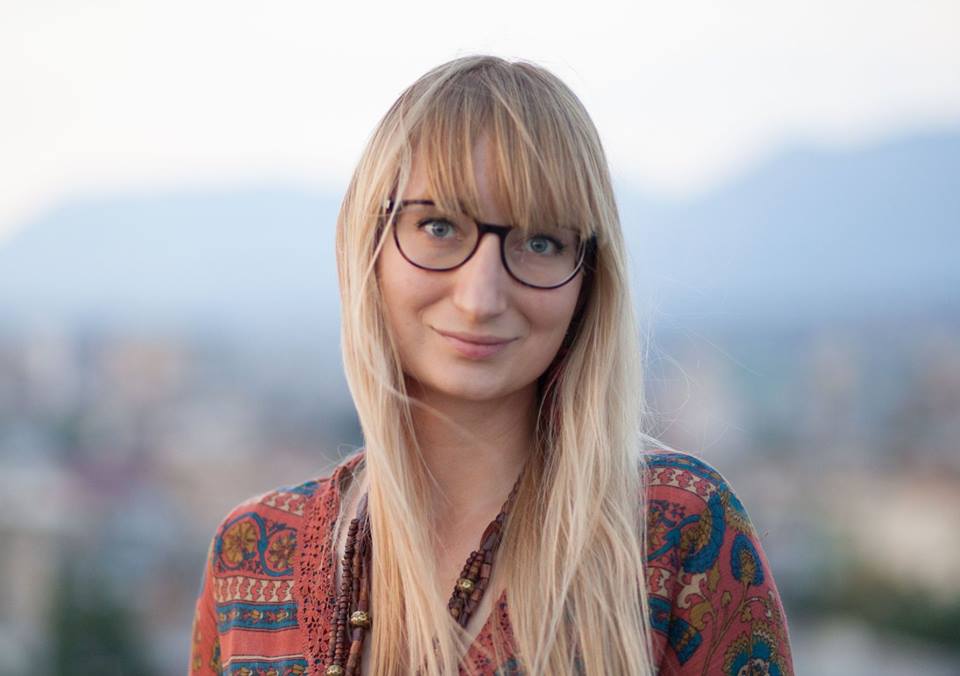Joker i Godot
Kiedy piszę te słowa, w Tiranie pada deszcz, pada nieprzerwalnie, od kilku dni, z posępną miarowością. Ludzie patrzą na ołowiane chmury i uśmiechają się. Połacie suchej ziemi czekały na tę wodę, ale w mieście beton nie jest w stanie przyjąć deszczu, który zamienia ulice w strumienie.
Przed chwilą wzięłam prysznic, nie za długi, nie za krótki, w sam raz, by nie mieć wyrzutów sumienia. Myślałam o czasach swojego dzieciństwa, gdy woda po prostu była wodą. Ta nad morzem zawsze była zimna, ta w rzekach zdradziecka. Groźna, a jednak niewinna. Woda mogła zabrać cudze życie, ale nigdy jej nie brakowało.
Dopiero gdy przyjechałam do Tirany, zrozumiałam czym jest brak wody. Albania ma obok Norwegii jedne z największych zasobów wodnych w Europie, a jednak z powodu dysfunkcyjnej infrastruktury zdarza się, że woda płynie z albańskich kranów tylko przez kilka godzin dziennie. Niemal każdy dom ma na dachu wielki kolektor, który gromadzi wodę na czas, gdy rury są puste. W moim pierwszym tirańskim mieszkaniu woda pojawiała się o godzinie trzeciej. Po upalnym dniu, spędzonym na mieście, człowiek marzył tylko o tym, by zmyć z siebie warstwę potu i kurzu. Ale musiał czekać, niecierpliwiąc się w swojej lepkiej skórze. Prysznic stawał się wyrafinowaną przyjemnością.
Powtarzające się ostatnio problemy z dostawą wody wiceminister infrastruktury skomentował klarownie: “Albania nie jest Szwajcarią! Albańczykom wydaje się, że są Szwajcarami, i zaczęli się myć codziennie. Za czasów mojej młodości wszyscy myli się raz w tygodniu, i wody jakoś starczało!”
Z powodu trwającej tygodniami awarii systemu wodociągowego, woda stała się albańską obsesją. Tak jak czterdzieści lat temu, mieszkańcy Tirany znowu musieli ustawiać się w kolejkach, tym razem do beczkowozów. Przy ujęciach wody ciągnął się sznur luksusowych samochodów, w których tylne siedzenia wypakowane były plastikowymii kanistrami. Kiedy po kilku miesiącach nieobecności odwiedziłam w Tiranie mojego przyjaciela, zobaczyłam szablon graffiti oparty o ścianę jego domu, z napisem: “Duke pritur Godone”, czekając na Godota. I obrazem drzewa, z którego gałęzi zwisają plastikowe kanistry. Rozwścieczeni młodzi Albańczycy zaczęli pokrywać miasto graffiti, pokazującym absurd sytuacji. Obrazy gniewu, które pojawiały się nocą, za dnia były zamalowywane przez dzielną gwardię burmistrza. Ale problem nie znikał.
Tak jak w sztuce Becketta, ludzie całymi dniami wyczekują. Ich rozpacz rośnie, i rośnie poczucie beznadziei. Tak jak na wodę, czekają na kogoś, kto odmieni ich los. Kogoś, kto wreszcie odmieni ich kraj. Kogoś, kto zaprowadzi normalność. Kto da im pracę, chleb i wodę.
Niech to będzie ktokolwiek. Może to być Godot, może to być Joker. Ktokolwiek, kto przyniesie zmianę i rewolucję. Ktokolwiek, kto wreszcie zacznie walczyć z niesprawiedliwością i poczuciem beznadziei. Albania, mówią ludzie czasem, jest jałową ziemią. Ziemią, na której wyschły źródła nadziei. Unia Europejska to Godot Albanii, na którego wszyscy czekają, ale który nigdy nie nadejdzie. Jeśli zamiast niego pojawi się Joker, będzie on wściekłością i rozpaczą tłumu. Tych wszystkich, którzy zostali w kraju, tych wszystkich, którym nie udało się uciec do lepszych światów.
Tam, gdzie wszyscy czekają na wodę, wyschnięta ziemia zacznie płonąć.
Joker und Godot
Während ich diese Worte schreibe, regnet es in Tirana, es regnet ohne Unterlass, seit Tagen schon, ein düster-beharrliches Tröpfeln. Die Menschen schauen hinauf zu den bleigrauen Wolken und lächeln. Der trockene Erdboden hat auf das Wasser gewartet, doch der Beton in der Stadt kann den Regen nicht aufnehmen, die Straßen verwandeln sich in breite Ströme.
Eben habe ich geduscht, nicht zu lange, nicht zu kurz, gerade so, dass ich keine Gewissensbisse haben muss. Ich musste an meine Kindheit denken, als Wasser einfach Wasser war. Das Meerwasser war immer kalt, das Wasser in den Flüssen trügerisch. Gefährlich, wenn auch nicht durch eigene Schuld. Wasser konnte Leben nehmen, doch einen Mangel an Wasser gab es nie.
Erst als ich nach Tirana kam, begriff ich, was Wassermangel bedeutet. Albanien hat neben Norwegen eines der weltweit größten Wasservorkommen, trotzdem kann es passieren, dass wegen der schlecht funktionierenden Infrastruktur nur wenige Stunden am Tag Wasser aus den albanischen Wasserhähnen fließt. Auf dem Dach fast jeden Hauses steht ein großer Tank, der Regenwasser auffängt für die Zeiten, in denen nichts aus der Wasserleitung kommt. In meiner ersten Wohnung in Tirana floss das Leitungswasser um drei Uhr nachts. Nach einem heißen Tag in der Stadt, wenn man nur noch den Wunsch hatte, sich endlich Schweiß und Staub abzuwaschen – hieß es warten, voller Ungeduld, unter der klebrigen Schicht, die sich auf die ganze Haut gelegt hatte. Duschen war zu einem exklusiven Vergnügen geworden.
Zu den Problemen mit der Wasserversorgung, die sich in letzter Zeit häufen, sagt der Vizeminister für Infrastruktur klipp und klar: „Albanien ist nicht die Schweiz! Die Albaner glauben wohl, sie wären Schweizer, dass sie sich jeden Tag waschen wollen. Als ich jung war, badeten wir alle ein Mal in der Woche, und das Wasser hat vollkommen ausgereicht!“
Weil das Problem sich über Wochen hinzieht, ist das Wasser den Albanern und Albanerinnen zur Obsession geworden. Wie vor vierzig Jahren müssen die Menschen in Tirana Schlange stehen, diesmal allerdings an Wassertanks. Endlos reihen sich Luxusautos hintereinander, auf den Rücksitzen Stapel von Plastikkanistern. Als ich einmal nach mehreren Monaten zurück nach Tirana komme, lehnt an der Hauswand meines Freundes eine Graffiti-Schablone: „Duke pritur Godonë“ – „Warten auf Godot“ steht darauf, und über dem Schriftzug der Ausschnitt eines Baumes mit Kanistern an den Zweigen. Wütende junge Leute haben begonnen, überall in der Stadt Graffitis anzusprayen, um die Absurdität des Ganzen zu verdeutlichen. Diese Bilder des Zorns, die Nacht für Nacht auftauchen, werden Tag für Tag von einer tapferen Garde des Bürgermeisters wieder übermalt. Doch das Problem verschwindet damit nicht.
Wie in Becketts Stück warten die Menschen tagelang. Ihre Verzweiflung wächst, und mit ihr das Gefühl der Hoffnungslosigkeit. Nicht nur auf Wasser warten sie, sondern auch auf jemanden, der ihr Schicksal in andere Bahnen lenkt. Der endlich die Zustände in ihrem Land ändert. Normalität einführt. Ihnen Arbeit gibt, Brot und Wasser.
Wer immer das sein wird. Godot oder Joker. Irgendjemand, der Veränderung bringt, eine Revolution. Jemand, der endlich gegen die Ungerechtigkeit kämpft, der etwas gegen die Hoffnungslosigkeit tut. Albanien, sagen die Menschen hier manchmal, ist ödes Land. Ein Land, in dem alle Hoffnungsquellen ausgetrocknet sind. Die EU ist Albaniens Godot, auf den alle warten, und der doch niemals kommen wird. Sollte an seiner Stelle der Joker auftreten, dann ist er die Wut, die Verzweiflung dieser Menschen. All derer, die geblieben sind, und all derer, denen die Flucht in bessere Welten gelungen ist.
Und hier, wo alle auf Wasser warten, beginnt die ausgedörrte Erde zu brennen.
Übersetzung: Lisa Palmes
The Joker and Godot
As I write these words, it is raining in Tirana, as it has rained constantly for several days, with gloomy regularity. People look at the leaden clouds and smile. The expanses of dry land were yearning for this water, but in the city the concrete can’t absorb the rain and it turns the streets into streams.
A moment ago I took a shower – not too long, not too short, just enough to not feel guilty. I thought about my childhood, when water was simply water. Water in the sea was always cold, water in rivers always treacherous. Dangerous and yet innocent. Water might take someone’s life, but there was always enough to be had.
It was only when I came to Tirana that I realised what a lack of water is. Along with Norway, Albania has some of the most abundant water resources in Europe, and yet because of dysfunctional infrastructure, sometimes water only runs in Albanian taps for a few hours each day. Nearly every house has a tank on the roof that collects water for times when the pipes are empty. In my first flat in Tirana, the water came on at 3 PM. After a sweltering day in the city, your only desire was to wash off that layer of sweat and dust. But you had to wait, growing impatient in your sticky skin. A shower became a sophisticated pleasure.
The deputy Minister for Infrastructure was very clear in his remarks on the recent recurring problems with the water supply: “Albania isn’t Switzerland! Albanians seem to think they’re Swiss and have started washing every day. In my day, everyone washed once a week and somehow there was enough water to go round!”
After weeks of this ongoing breakdown in the water supply system, water has become an obsession in Albania. Just like forty years ago, Tirana’s citizens were once again forced to stand in queues – this time for the water trucks. Strings of luxury cars lined up at water sources with plastic canisters piled up on the back seats. When I visited my friend in Tirana after several months away, I saw a graffiti stencil leaning against the wall of his house, which read: “Duke pritur Godone” – Waiting for Godot. And with it a picture of a tree with plastic canisters hanging off its branches. Furious young Albanians started covering the city with graffiti depicting the absurdity of the situation. These pictures of rage, which appeared in the night, were painted over by the efficient municipal guard in the daytime. But the problem didn’t go away.
As in Beckett’s play, people wait for days on end. Their despair grows, and the feeling of hopelessness grows. Just as for the water, they wait for someone to change their fate. Someone who will finally change their country. Someone who will establish normality. Who’ll give them work, bread and water.
It could be anyone. It could be Godot, it could be the Joker. Anyone who brings change and revolution. Anyone who finally starts fighting injustice and the feeling of hopelessness. People sometimes say Albania is a barren land. A land in which the seeds of hope have dried out. The European Union is Albania’s Godot, for whom everyone is waiting, but who will never come. If the Joker appears in its place, he will be the fury and despair of the crowds. Of all the people who stayed in the country, all the people who weren’t able to escape to better worlds.
In the place where everyone is waiting for water, the dried-out land will begin to burn.
Translation: Zosia Krasodomska-Jones
Teilen
-
20 Mittwoch
19:30 UhrLCB-diplomatique.net
Saaldiskussion zum Launch des neuen Literaturkorrespondent·innen-Portals
Grußwort: Dr. Jens Schüring (Auswärtiges Amt)
Impulsbeitrag: Jacek Dehnel
Jacek Dehnel, Małgorzata Rejmer, Kate Connolly, João Paulo Cuenca, Christine Hamel
Moderation: Jenny Friedrich-Freksa
Veranstaltungen mit Małgorzata Rejmer
2019
November












